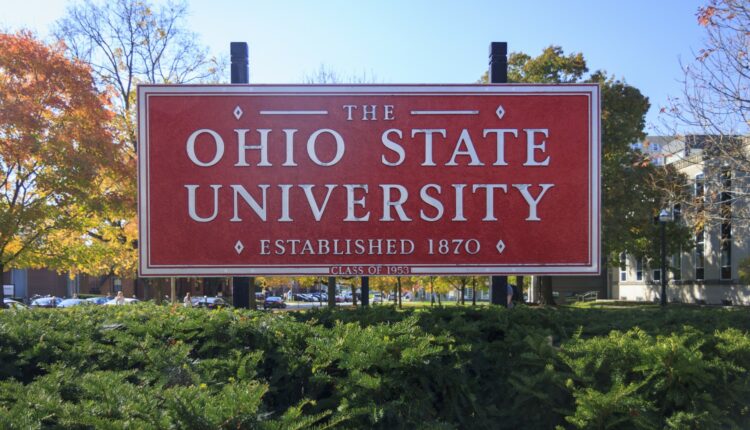Ohio State University: Summer Institute brings together educators nationwide to address equity issues
Six teams from The Ohio State University worked collaboratively to devise strategies on how to increase access to higher education and support services for underserved populations. The 2022 Summer Institute for Equity in the Academic Experience was held, in part, on campus this week.
Ohio State was one of 50 colleges across the United States that participated in the institute – and one of nine that served as a leadership site that shared responsibility for planning and programming. The institute was co-presented by Georgetown University, Xavier University of Louisiana and the American Talent Initiative (ATI).
ATI is an alliance, which includes Ohio State, of high-graduation-rate colleges and universities committed to expanding access for low- and middle-income students.
In assembling the teams, Meg Daly, Ohio State’s associate dean of undergraduate education, said she and Shanna Jaggars, assistant vice provost in the Office of Academic Affairs, reached out to existing teams within the university as well as individuals with common interests who would benefit from collaboration.
“The goal of these workshops is for teams of people already working together or who intend to work together to use this institute as a catalyst,” Daly said. “Shanna and I really reached out very broadly through all the different networks of deans and vice provosts and just said, ‘Hey, here’s an opportunity to have focused time and support in terms of mentoring and inspiration to work on challenges that you’re working on already.’”
“They are putting together a concrete direction for where they want to go,” Jaggars said of Ohio State’s teams. “This is a great accelerator to get people from, ‘We kind of want to do this,’ to, ‘HereShanna Jaggars
Shanna Jaggars
are the things we’re going to do.’”
Ohio State’s teams were among more than 70 teams nationwide made up of 250 faculty, staff and administrators who participated in this year’s institute – double the number of participants in 2019’s inaugural event, said Roderick Lee, a member of the ATI Summer Institute Leadership Advisory Board.
“We realized institutions have projects designed to bridge equity gaps and enhance student success, but that work is disconnected,” said Lee, an associate professor of information systems at Penn State Harrisburg. “Expanding the ecosystem is an important part of this, because egg-crated silos and isolation impede progress.”
Ohio State’s teams, representing a broad spectrum of colleges and offices, worked in person on campus and in hybrid formats, brainstorming on such issues as:
How to more fully understand and address academic equity issues.
How to create global learning experiences for students in science, technology, engineering and math (STEM).
Developing a support plan for students of color in the university’s Honors and Scholars center.
How to help leadership, faculty and staff to become more engaged in diversity, equity, inclusion and social justice (DEIJ) initiatives that support students.
How to bolster an environment of inclusion in the university’s library system.
Depending on the scope of the issue, strategies identified during the institute will be implemented right away or on a long-term basis, Daly said.
“Some of the teams have a very defined goal – ‘We’re trying to solve this problem,’” she said. “In those cases, I think there’s a very high probability that whatever plan they come up with will be implemented, and pretty quickly because the goal is so direct. In other cases, I think the goals are a little bit of a higher level. Will it be implemented? I’m sure, because it will change how people approach a problem and how they work together.”
Kate Hallihan, assistant dean of Students and Instruction and diversity officer for the John Glenn College of Public Affairs, said the institute enabled her team to map out DEIJ initiatives. She said they based the plan on the results of a recent survey that measured students’ sense of belonging in the college environment.
Hallihan said she and John Glenn teammates Tasha Perdue, Meagen Rinard and Regina Robinson-Easter and student, Kendra Asiedu, benefited from conferring with colleagues from other departments, including the Office of Diversity and Inclusion. They also shared best practices with national counterparts who participated via Zoom, she said.
“Starting with the results from the belonging survey, we’ve been able to develop ongoing, sustainable initiatives that we’re going to embark on and/or continue, as well as several events that put action where our plans are,” Hallihan said. “This (institute) has allowed us time and space to take data and form a vision that’s attached to the university’s values and our college values and develop a plan to execute, starting in August. It’s been really powerful.”

